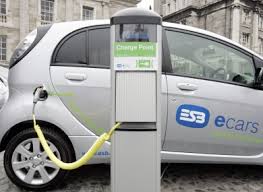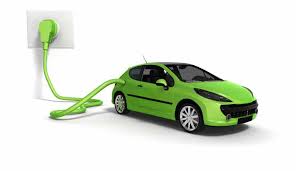Well, is it time to embrace the electric car?
Yes, nearly.
Actually, that’s an answer that still depends on your personal circumstances, and your driving needs but there is absolutely no doubt that the dawn mass electric motoring is drawing nearer at a faster rate than ever.
Recent history
Five years ago, when plans were first announced that Ireland would become something of a global test case for electric cars, hopes were stratospherically high. All of the experts had concluded – Ireland was perfect for electric cars. We have a mild climate, a relatively low-lying landscape, short distances between our major urban centres and our electricity network is still, largely, government owned. Tax breaks and incentives were announced, cars were put on sale and we sat back and waited for the electric car revolution to start.
It didn’t. In fact, in that five years, electric car sales in Ireland have still not quite hit 2,000 units, which is more than a bit of a disappointment, especially as the Government had promised that, by 2020, sales of electric cars would account for ten per cent of all car sales. That would be about 12,000 a year, by the way.
The future is bright
 But while the electric firework was a damp squib at first, it’s one that’s about to light up, big time. The recent scandal over diesel engines has highlighted the damage we’re all doing to our city centre air quality by continuing to drive around in diesel (and indeed petrol) cars. Anyone doubting this should do a news headline search for the recent air quality recordings in Beijing – they were so bad that the Chinese government had to ban half of all cars from the road for several days until the smog cleared.
But while the electric firework was a damp squib at first, it’s one that’s about to light up, big time. The recent scandal over diesel engines has highlighted the damage we’re all doing to our city centre air quality by continuing to drive around in diesel (and indeed petrol) cars. Anyone doubting this should do a news headline search for the recent air quality recordings in Beijing – they were so bad that the Chinese government had to ban half of all cars from the road for several days until the smog cleared.
Then there was the recent signing of the new climate change accords in Paris. OK, so the legal framework for these accords is a little loose-limbed and it’s still a bit unclear as to how the lofty promise of limiting climate change to less than 2-degrees celsius on average is going to be stuck to, but the message for road transport is clear; the internal combustion engine has probably less than four decade’s life left in it.
Choice is improving
 The good news is that, in 2016, it’s going to be easier than ever to go electric, or at least partially so. There are an increasing number of plugin hybrids coming onto the market, which when you charge them up from the mains, give your an electric-only range of around 50km, but which still have conventional petrol engines on board to take up the strain for longer journeys. For most Irish car buyers, it’s an enticing mix, and an easy first step on the electric car ladder, especially as it takes away the ‘range anxiety’ worry of running out of juice – you can still top these ones up with petrol to get you home. Audi has just launched a plugin e-Tron version of its big Q7 SUV, as have BMW (with the X5 40e) and Volvo (with the XC90 T8). Now, all of these cost north of €70k, which is a bit rich, but thankfully Mitsubishi, which introduced its Outlander PHEV plugin hybrid two years ago, has just updated the model with new styling and an improved interior, and it’s on sale for just over €40k.
The good news is that, in 2016, it’s going to be easier than ever to go electric, or at least partially so. There are an increasing number of plugin hybrids coming onto the market, which when you charge them up from the mains, give your an electric-only range of around 50km, but which still have conventional petrol engines on board to take up the strain for longer journeys. For most Irish car buyers, it’s an enticing mix, and an easy first step on the electric car ladder, especially as it takes away the ‘range anxiety’ worry of running out of juice – you can still top these ones up with petrol to get you home. Audi has just launched a plugin e-Tron version of its big Q7 SUV, as have BMW (with the X5 40e) and Volvo (with the XC90 T8). Now, all of these cost north of €70k, which is a bit rich, but thankfully Mitsubishi, which introduced its Outlander PHEV plugin hybrid two years ago, has just updated the model with new styling and an improved interior, and it’s on sale for just over €40k.
BMW will also launch two more plugin hybrids next year, the 225xe and the 330xe, and those will be significantly cheaper than the X5.
Volkswagen, whose diesel-power scandal has caused much of the increasing interest in electric propulsion, is also introducing more plugin hybrids, including GTE version of both the Golf and the Passat. The Audi A3 e-Tron, which uses the same 1.4-litre-turbo-plus-electric-motor powertrain has been on sale for more than a year now.
Nissan too has been busy, and has just delivered a significant upgrade of its Leaf, which can lay a substantial claim to being the first truly popular electric car. When originally launched, the Leaf had a one-charge range of 160km, which was a bit too short for most drivers to feel comfortable. Now though, a battery upgrade to a 30kWh unit has seen that range climb to 250km, and Nissan is currently offering buyer a €1,000 discount on upgrading to the bigger battery stack. It’s a tempting offer, not least because that increase in range makes the Leaf a much more sensible option for a great many more of us.
Tesla will hopefully too bring its cars to Ireland for the first time in 2016, although plans have not yet been finalised. The Model S saloon has become synonymous with electric propulsion and has garnered more than a few headlines, not just for its 500km one-charge range, but its staggering acceleration and performance. To that, Tesla has just added the Model X SUV, which seats seven (as does, optionally, the Model S) and has outrageous gull-wing rear doors. Both cars are expensive, more than €100,000 on a personal import, but Tesla is already working on a more compact, more affordable saloon, tentatively called the Model 3, and we should see some sight of that in 2016.
Outlook for electric cars
 So, that question again – is it the right time for me to go electric? You need to ask yourself a few tough questions first. Is most of your mileage around town? Do you only seldom do long motorway journeys? Are you prepared to take those long journeys by train, or spend some time carefully planning for charge-ups along the way? If the answer to all those questions is yes, then you probably are ready to go electric.
So, that question again – is it the right time for me to go electric? You need to ask yourself a few tough questions first. Is most of your mileage around town? Do you only seldom do long motorway journeys? Are you prepared to take those long journeys by train, or spend some time carefully planning for charge-ups along the way? If the answer to all those questions is yes, then you probably are ready to go electric.
Good luck, it’s a brave new future.